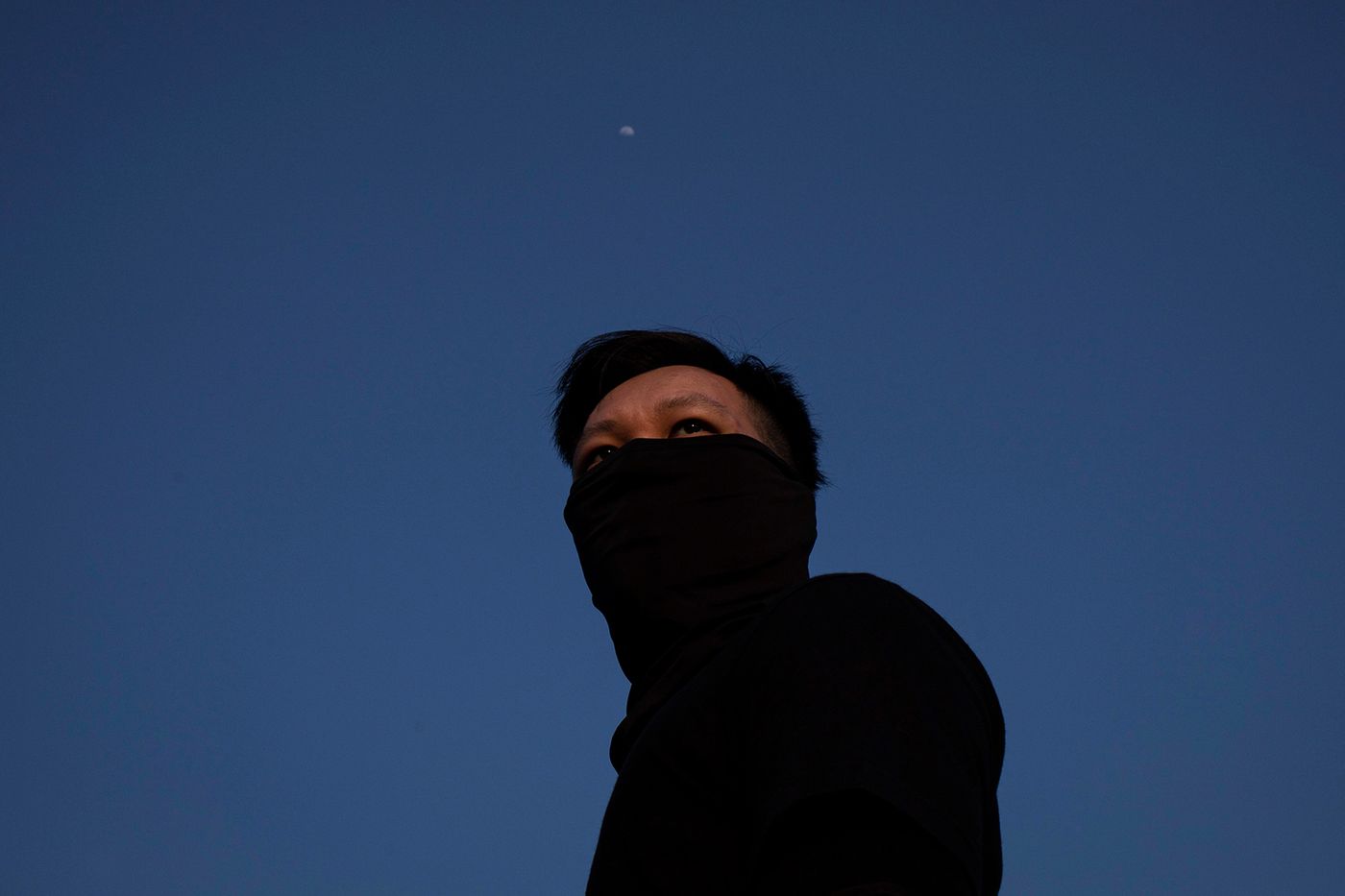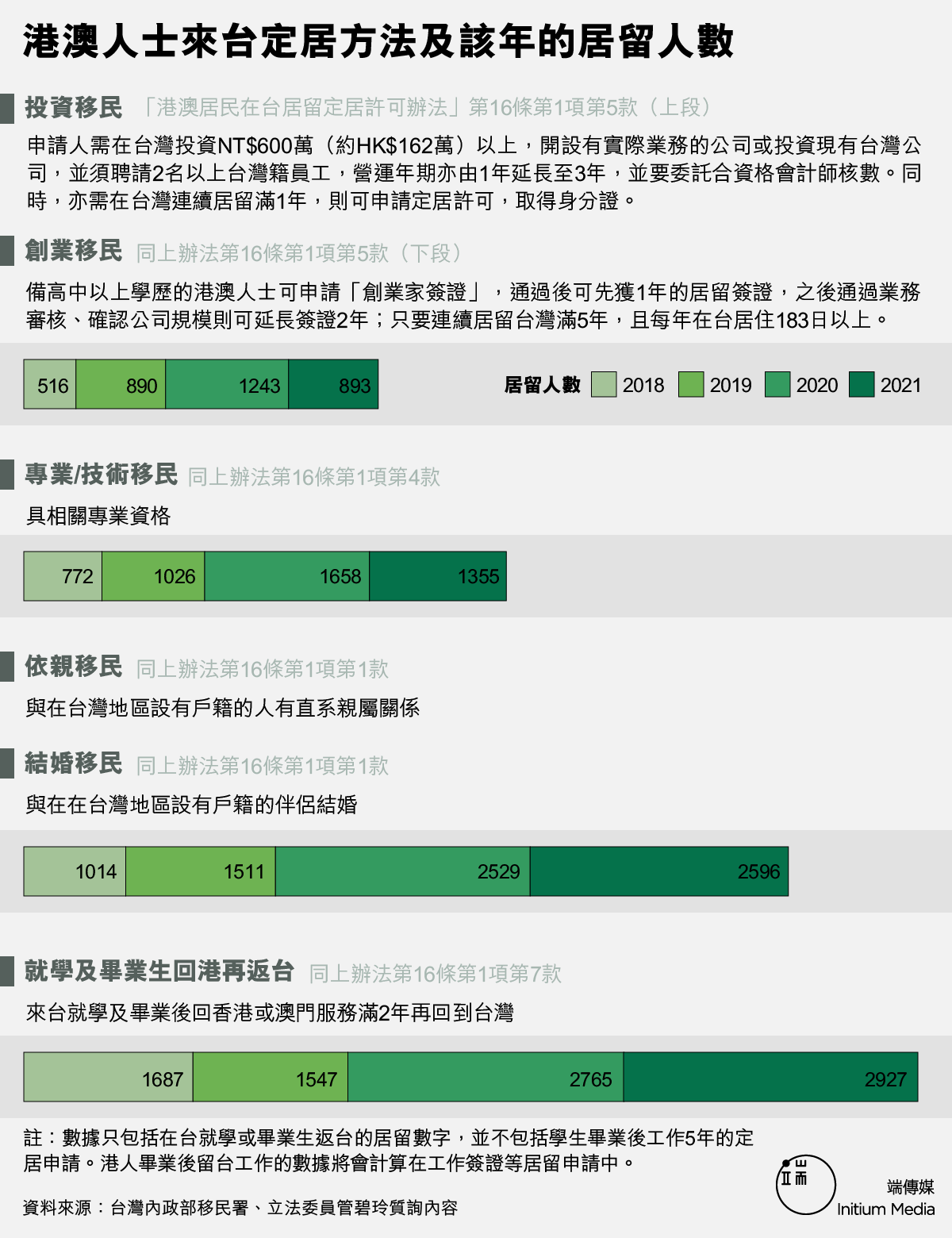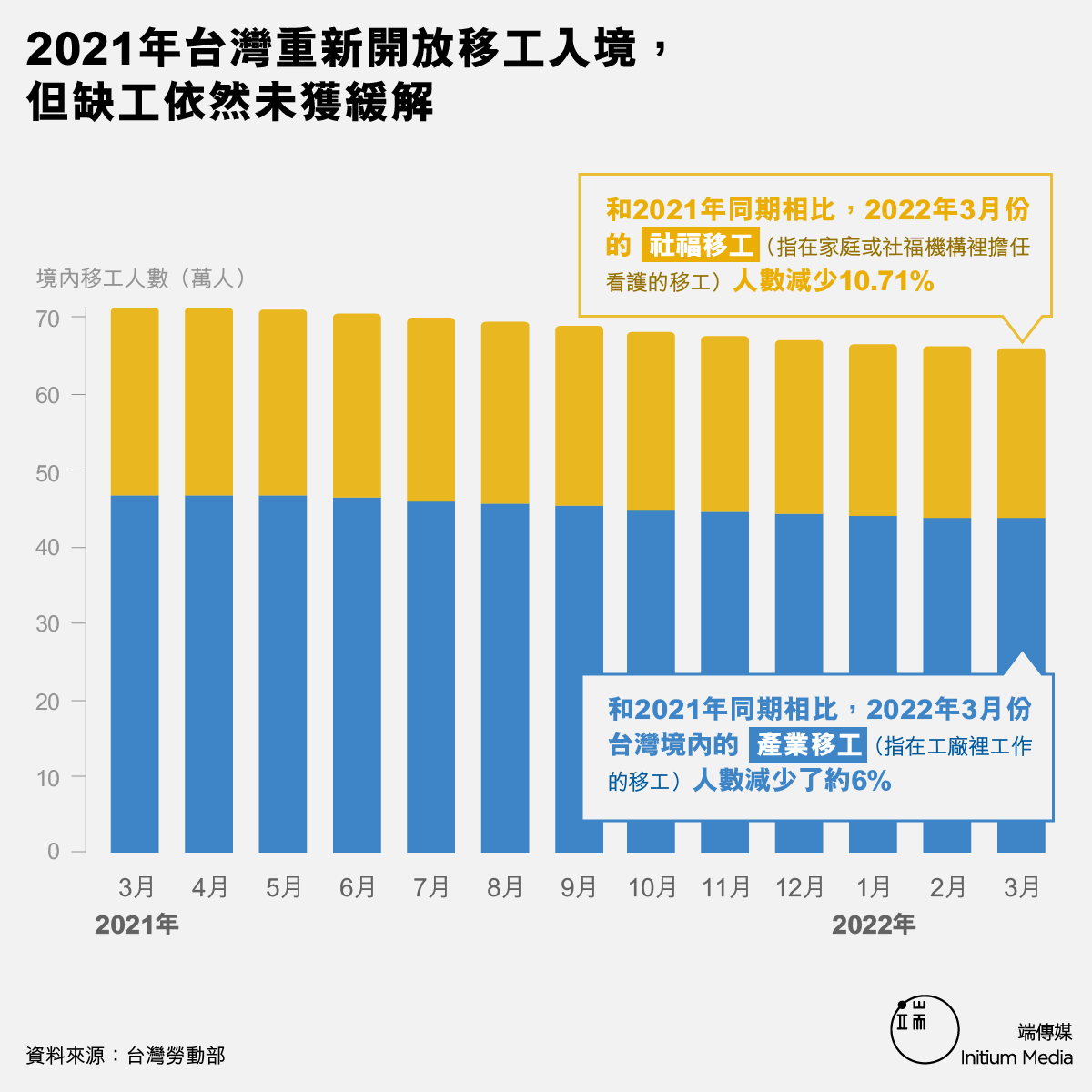
記者/譯者
Do Taiwanese really oppose Hong Kong people moving to Taiwan? In addition to "national security concerns", what other discussions are we missing?

Although it is not an accident, Duan Media's report "Sorrow and Anxiety of Hong Kong People's Beheading and Leaving Home, and the Advances and Recessions of Taiwan's Immigration Policy" still attracted a lot of comments, some of which were emotional.
What some Hong Kong readers care about is not "the inability to integrate into Taiwanese society" (in fact, where will immigrants not have adjustment problems?), nor "the Taiwanese government says one thing and does another", but "immigration rules are confusing, Conditions are not clear."
But to be fair, in fact, the channels for Hong Kong people to "settlement" in Taiwan are relatively diverse, and the rules are very clear-if the controversial "employment and settlement" policy is not counted, Hong Kong people now have investment, entrepreneurship, professional, There are channels such as relatives, marriage, schooling, and graduates returning to Taiwan, and some channels can apply for "settlement" as long as they stay for one year, which is more favorable than other foreigners.
The real "conditions unknown" should actually only be the so-called "HF177 asylum residence", which is a channel to provide political asylum for "refugees".
Some people think that the MAC is worried about touching Beijing's nerves, so it has so far been reluctant to say whether and how many people use this channel to come to Taiwan, and that it wants to launch the "employment settlement" plan, replacing "employment" with "employment". shelter".

But here, there is a small eyebrow worthy of mention.
The reason why we say "settlement" instead of "immigration" is actually because Hong Kong people are indeed an embarrassing existence in Taiwan's constitutional structure.
Before 1997, Hong Kong people were basically regarded as "overseas overseas Chinese" by the Taiwan government, so they could apply for an "Overseas Chinese Certificate" and come to Taiwan to study as an "overseas Chinese student", and the naturalization procedures were relatively simple.
However, after 1997, Hong Kong was effectively ruled by Beijing, and Hong Kong and Macau affairs were also brought under the jurisdiction of the Mainland Affairs Commission. As a result, Hong Kong people lost their "overseas Chinese" status, and basically they had to be treated as "people of the mainland".
However, Hong Kong and Macao people are not "mainland people" after all - their economic conditions are better and they have always had close interaction with Taiwan, so the method of staying and settling in Taiwan has been looser than that of "mainland people" until today.
But whether they were "overseas Chinese" before 1997 or "people from Hong Kong and Macau" after 1997, Hong Kong people are in a Schrödinger state: although they cannot be called "foreigners", they are not real "Nationals of the Republic of China".
This is why the procedure for Hong Kong people to obtain Taiwan identity cards and passports is called "settlement", not "naturalization" like other foreigners-because they are originally "quasi-nationals of the Republic of China", and naturalization is only a matter of From a state similar to "nationals without household registration" to "nationals with household registration".

Speaking of which, I would like to digress a little.
The so-called "non-registered nationals" refer to all the "overseas Chinese" in the world - to the ROC government, all Chinese are potential "nationals" and can apply for ROC nationality, but the scope of application , does not include "Mainland People" and "Hong Kong and Macau Residents".
However, there are still many differences in "national treatment" between "nationals without household registration" and "nationals with household registration" living in Taiwan.
For example, if overseas nationals do not have household registration in Taiwan, they can only exercise the voting rights of the president and vice president, but they cannot participate in the election of legislators, and they do not have party votes. Other rights in Taiwan are also limited to varying degrees.
If you open the Wikipedia entry "Visa Requirements for Citizens of the Republic of China", readers will also find that there are two types of green blocks on the "Visa Exemption Map" used to mark "Visa Exempt Countries":
Dark green is the visa-free destination that "requires a national ID card number", while light green is a visa-free destination that "does not need to provide a national ID card number"; and the above-mentioned "non-registered nationals" hold the With passports of the Republic of China without a national ID number, they can travel to fewer countries visa-free than the average Taiwanese.
In general, the series of reforms on nationality carried out by the Taiwanese government in the 1990s all implicitly linked the concept of a national of the Republic of China with the "fact of residence in Taiwan" through discriminatory treatment in practice. , thereby gradually excluding overseas Chinese from the definition of "Nationals of the Republic of China".
For details on "nationals without registered permanent residence", you can refer to this earlier report by Duan Media: "Is Taiwan "using the epidemic to seek independence"? A Thriving Health Care Community During the Epidemic" .

But having said that, no matter how much we know about the recent Hong Kong immigration controversy, the last two reminders in this report are no longer simply a "Hong Kong immigration" issue.
First of all, as Mr. Shu Mei said, this time the MAC decided to "suspend" the implementation of the employment and settlement policy for Hong Kong people on the grounds of "public opinion" -- but what exactly is this "public opinion"? Do most people in Taiwanese society really understand and discuss this issue? Has the government really conducted a rigorous "public opinion" survey?
Although we are a "democratic society" and we must resort to "public opinion" in everything, can the few extreme voices on the Internet and the opposition of a few legislators be considered "public opinion"?
To go further, this dispute over the transfer of Hong Kong people to Taiwan may also reflect a blind spot in the operation of Taiwan's democratic system: it is precisely because we call ourselves a "democratic society" that "public opinion" seems to be a "sword of honor". No matter what policy you want to promote or don't want to promote, you can use this "big idea" as a basis, but you don't need to study how this "public opinion" came from, and how rigorous the process of learning "public opinion" is.

The second noteworthy reminder is related to Taiwan's immigration policy and the mentality of Taiwanese people regarding immigration affairs.
In fact, it is not just Hong Kong people who immigrate. Taiwan's immigration policy has recently undergone a lot of changes, but it has not received much attention-except for the slightly more well-known "employment gold card", the Ministry of Labor has just announced At the end of the month, the "Migrant Workers Stay Long" program was launched, allowing migrant workers to permanently reside in Taiwan.
The background of these changes is obvious: in 2020, Taiwan has officially entered a stage of negative population growth, followed by serious job shortages due to the booming economy and the epidemic.
Therefore, if we look at it in a larger context, in fact, this dispute over the "Hong Kong immigration policy" also provides a good opportunity for us to go back and conduct an overall review of Taiwan's population structure and immigration policy. .
It's just that so far, the discussion has remained at the level of "whether immigration of Hong Kong people will cause national security concerns", and there has been no in-depth and comprehensive discussion on immigration policy, which is really a pity.
I sincerely hope that everyone will start paying attention to Taiwan's overall immigration policy because of this issue. Although it seems that most people in Taiwan and our government are not ready to welcome immigrants who are not "naturalized because of marriage"- ─However, the so-called new residents and new immigrants are not necessarily only "xx brides" and "Taiwanese sons-in-law".
Like my work?
Don't forget to support or like, so I know you are with me..
Comment…